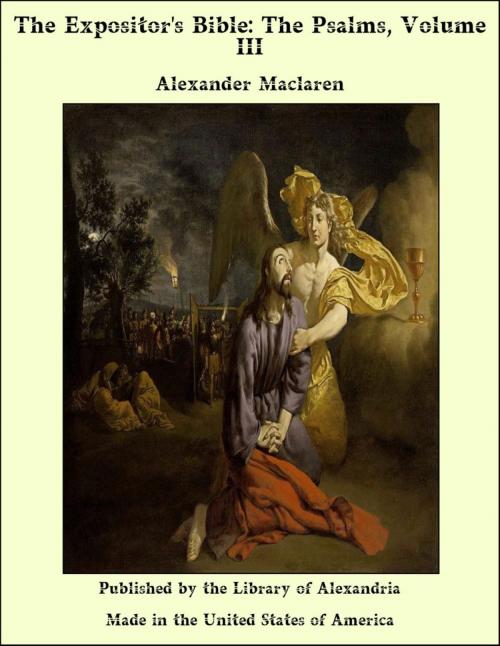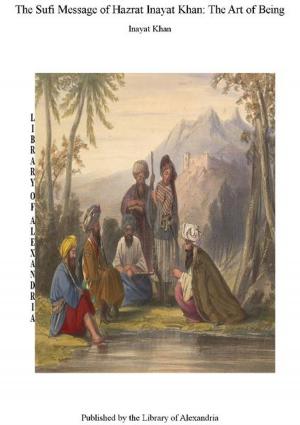The Expositor's Bible: The Psalms, Volume III
Nonfiction, Religion & Spirituality, New Age, History, Fiction & Literature| Author: | Alexander Maclaren | ISBN: | 9781465588869 |
| Publisher: | Library of Alexandria | Publication: | March 8, 2015 |
| Imprint: | Language: | English |
| Author: | Alexander Maclaren |
| ISBN: | 9781465588869 |
| Publisher: | Library of Alexandria |
| Publication: | March 8, 2015 |
| Imprint: | |
| Language: | English |
The sad and stately music of this great psalm befits the dirge of a world. How artificial and poor, beside its restrained emotion and majestic simplicity, do even the most deeply felt strains of other poets on the same themes sound! It preaches man's mortality in immortal words. In its awestruck yet trustful gaze on God's eternal being, in its lofty sadness, in its archaic directness, in its grand images so clearly cut and so briefly expressed, in its emphatic recognition of sin as the occasion of death, and in its clinging to the eternal God who can fill fleeting days with ringing gladness, the psalm utters once for all the deepest thoughts of devout men. Like the God whom it hymns, it has been "for generation after generation" an asylum. The question of its authorship has a literary interest, but little more. The arguments against the Mosaic authorship, apart from those derived from the as yet unsettled questions in regard to the Pentateuch, are weak. The favourite one, adduced by Cheyne after Hupfeld and others, is that the duration of human life was greater, according to the history, in Moses' time than seventy years; but the prolonged lives of certain conspicuous persons in that period do not warrant a conclusion as to the average length of life; and the generation that fell in the wilderness can clearly not have lived beyond the psalmist's limit. The characteristic Mosaic tone in regarding death as the wages of sin, the massive simplicity and the entire absence of dependence on other parts of the Psalter, which separate this psalm from almost all the others of the Fourth Book, are strongly favourable to the correctness of the superscription. Further, the section vv. 7-12 is distinctly historical, and is best understood as referring not to mankind in general, but to Israel; and no period is so likely to have suggested such a strain of thought as that when the penalty of sin was laid upon the people, and they were condemned to find graves in the wilderness. But however the question of authorship may be settled, the psalm is "not of an age, but for all time."
The sad and stately music of this great psalm befits the dirge of a world. How artificial and poor, beside its restrained emotion and majestic simplicity, do even the most deeply felt strains of other poets on the same themes sound! It preaches man's mortality in immortal words. In its awestruck yet trustful gaze on God's eternal being, in its lofty sadness, in its archaic directness, in its grand images so clearly cut and so briefly expressed, in its emphatic recognition of sin as the occasion of death, and in its clinging to the eternal God who can fill fleeting days with ringing gladness, the psalm utters once for all the deepest thoughts of devout men. Like the God whom it hymns, it has been "for generation after generation" an asylum. The question of its authorship has a literary interest, but little more. The arguments against the Mosaic authorship, apart from those derived from the as yet unsettled questions in regard to the Pentateuch, are weak. The favourite one, adduced by Cheyne after Hupfeld and others, is that the duration of human life was greater, according to the history, in Moses' time than seventy years; but the prolonged lives of certain conspicuous persons in that period do not warrant a conclusion as to the average length of life; and the generation that fell in the wilderness can clearly not have lived beyond the psalmist's limit. The characteristic Mosaic tone in regarding death as the wages of sin, the massive simplicity and the entire absence of dependence on other parts of the Psalter, which separate this psalm from almost all the others of the Fourth Book, are strongly favourable to the correctness of the superscription. Further, the section vv. 7-12 is distinctly historical, and is best understood as referring not to mankind in general, but to Israel; and no period is so likely to have suggested such a strain of thought as that when the penalty of sin was laid upon the people, and they were condemned to find graves in the wilderness. But however the question of authorship may be settled, the psalm is "not of an age, but for all time."















